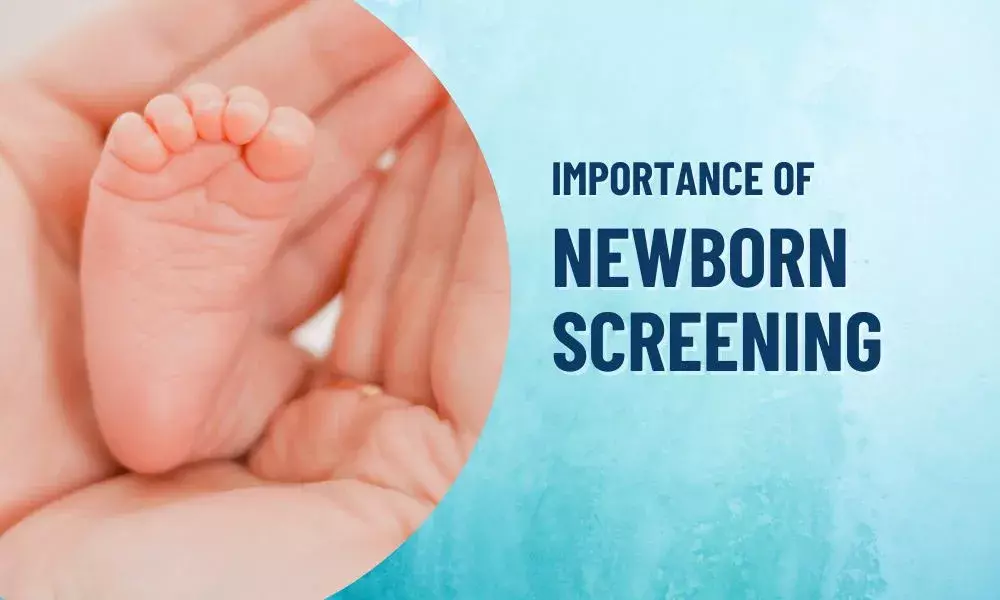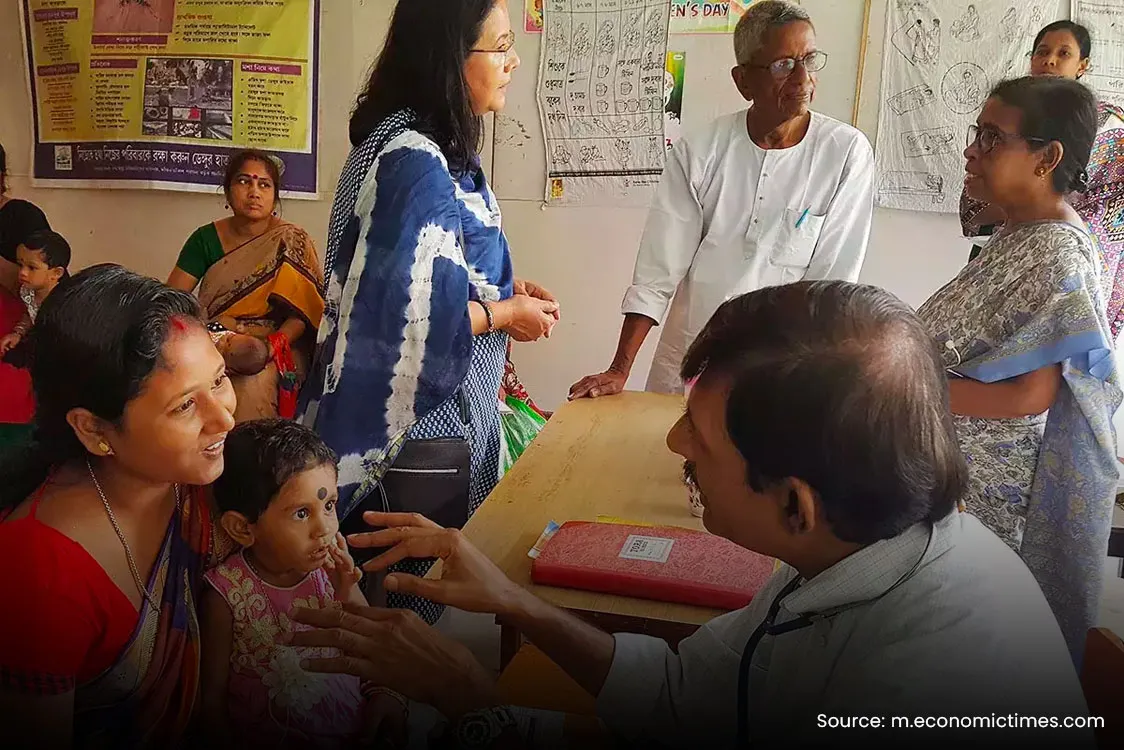Newborn screening (NBS) is an initial stage screening program done shortly after birth that includes testing newborn infants for certain genetic, congenital, and metabolic disorders.
The Infant Mortality Rate (IMR) in India is the highest globally. The leading causes for a high IMR are low birth weight, pneumonia, and birth asphyxia. Other genetic, metabolic, and congenital disorders also cause infant mortality. However, detecting these disorders in time can help reduce morbidity and mortality in newborns.
The inborn errors of metabolism (IEM), if not treated early at birth, may cause issues to the infant as they grow:
-
Learning disabilities
-
Mental Retardation
-
Autism & Dyslexia
-
Behavioural abnormalities
-
Scholastic backwardness
If not detected and treated early, such disorders may create a significant financial and emotional burden on the parents, from diagnosis to the treatment of the child. Hence, the most cost-effective and rational way of preventing such tragedies is to undertake newborn screening at birth and detect most of the preventable or treatable, if not all IEMs and genetic disorders.
The NBS Procedure
The newborn screening test is generally performed between 1-2 days old. In this test, a few drops of blood are taken from the baby’s heel on a special paper and sent to the screening laboratory for testing.
Newborn screening aims to identify rare but potentially severe conditions that may not be apparent at birth or in the early stages of development but may surface at the latter stage of life.
Disorders identified by NBS
NBS helps identify health conditions such as metabolic disorders, congenital hypothyroidism, cystic fibrosis, sickle cell disease, etc. By identifying and addressing potential health conditions early in a child’s life, healthcare providers can prevent or mitigate the long-term effects of certain disorders.
Certain conditions identified through newborn screening can cause irreversible damage if left untreated. For example, phenylketonuria (PKU) is a metabolic disorder, if untreated, can lead to severe intellectual disability. However, with early diagnosis and dietary modifications, the harmful effects of PKU can be prevented, allowing affected children to lead normal lives.
Delay in diagnosing and treating an Inborn Error of Metabolism (IEM), or other disorders such as hypothyroidism, or G6PD deficiency, may cause significant mental decline in the affected babies. The most unfortunate aspect is that many infants do not show any preliminary signs of disorders at birth, even if they have certain conditions. NBS allows these conditions to be detected at birth, allowing the child to potentially lead a normal and healthy life.
Expanding Scope of Screening
Over the years, newborn screening has expanded to include many conditions. Advances in technology and scientific research have allowed for the development of more comprehensive screening panels, enabling the identification of a wider range of disorders. As technology continues to evolve, the accuracy and scope of newborn screening will improve, providing greater opportunities for early detection and intervention.
The Bottom Line
Newborn screening at present is not very common in India. Still, it is one of the most important preventive healthcare tools and offers numerous benefits for infants, families, and society. Early detection of conditions through newborn screening allows for timely interventions, preventing irreversible damage and improving long-term health outcomes. Therefore, NBS should be considered at birth.
Data Source: https://shorturl.at/mGLM2





